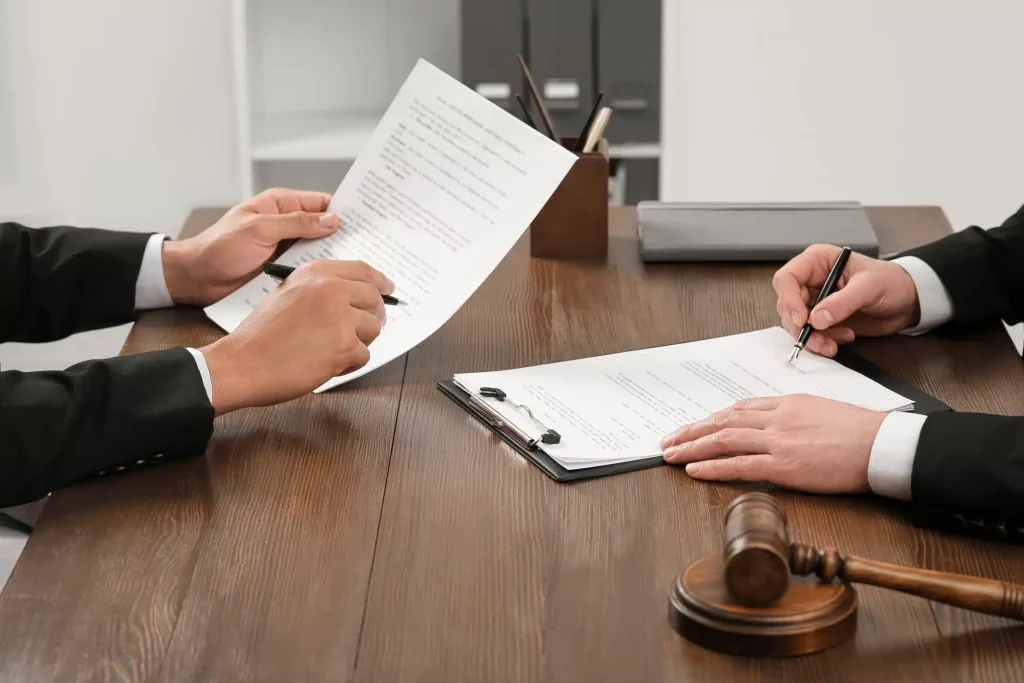A deposition is a critical part of your personal injury case, and your testimony can greatly impact the outcome. Knowing what to say—and what to avoid—can help protect your claim.
What to Say in a Deposition
1. Answer Truthfully:
Always be honest. Depositions are taken under oath, and lying can damage your credibility and your case.
2. Provide Concise Answers:
• Stick to the question asked and provide short, direct answers.
• Example:
• Question: “What time did the accident occur?”
• Answer: “Around 2:30 PM.”
3. State Facts, Not Opinions:
Only testify about what you know or remember. Avoid guessing or making assumptions.
• Example:
• Question: “How fast was the other car going?”
• Answer: “I don’t know.”
4. Say “I Don’t Know” or “I Don’t Remember” When Necessary:
It’s okay to admit when you’re unsure. Don’t speculate or try to fill in gaps.
5. Be Polite and Professional:
Stay calm and respectful, even if the questioning feels aggressive. This helps maintain a favorable impression.
What Not to Say in a Deposition
1. Avoid Exaggerations:
Don’t overstate your injuries, pain, or limitations. Opposing counsel may use medical records to contradict you.
• Avoid: “I can’t do anything anymore.”
• Better: “Certain activities are harder for me now.”
2. Don’t Volunteer Extra Information:
Only answer the specific question asked. Volunteering unnecessary details may open up new areas of questioning.
• Question: “Where were you going when the accident happened?”
• Avoid: “I was driving to my doctor’s appointment because I’ve had back problems for years.”
• Better: “I was heading home.”
3. Don’t Speculate or Guess:
If you don’t know something, say so. Speculating can lead to inaccuracies that weaken your case.
• Avoid: “I think the driver was texting.”
• Better: “I didn’t see what the driver was doing.”
4. Avoid Absolute Statements:
Using phrases like “always” or “never” can be risky. If evidence contradicts your statement, it can damage your credibility.
• Avoid: “I’ve never had back pain before.”
• Better: “I don’t recall having back pain before this accident.”
5. Don’t Discuss Conversations with Your Attorney:
These are protected by attorney-client privilege. If asked, you can say, “I discussed this with my attorney, but I cannot share those discussions.”
6. Don’t Admit Fault:
Avoid making statements that could be interpreted as admitting fault, even partially.
• Avoid: “I guess I didn’t see the car coming.”
• Better: “I don’t recall seeing the car before the collision.”
Additional Tips
• Take Your Time: Think carefully before answering each question. It’s okay to pause and gather your thoughts.
• Ask for Clarification: If you don’t understand a question, ask for it to be repeated or clarified.
• Stick to Your Deposition Prep: Review the facts of your case with your attorney beforehand to feel confident and prepared.
Final Thoughts
Your deposition is a key moment in your case, and careful preparation can make all the difference. Work closely with your attorney to ensure you understand how to handle common questions and avoid pitfalls.
***
Disclaimer
This information is general in nature and does not constitute legal advice. For personalized guidance on your personal injury case, consult with an experienced attorney.

